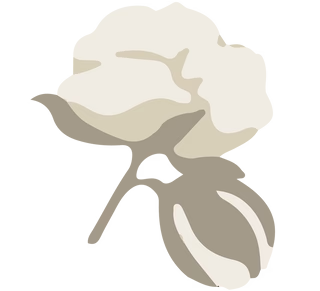
Organic Cotton
We take Organic Cotton seriously. Here's what you need to know.
What do we mean when we talk about "Organic Cotton?"
At Hope & Henry, our mission is to create beautiful, high-quality clothing that is affordable to all while maximizing the use of organic cotton and sharing profits with the talented women and men that sew them. However, “Organic Cotton” can be a loaded term. Hundreds of companies shout from the rooftops that they use organic cotton in everything from bedsheets to diapers to garden gloves to, well, children’s clothing. Every year, more and more consumers seek out products that are made from organic cotton or are produced using organic processes - and that's a great thing! With that said, we think it’s important to distinguish between what we mean when we use the phrase “organic cotton” and what we don’t currently claim regarding Hope & Henry products. Here is what we are proud to claim today:
Our focus on organic is where it matters most: at the front end, where the cotton is grown and made into yarn and fabric.
99% of cotton in the world is grown using chemicals—fertilizers, pesticides, and other inorganic materials. The clothing industry, as a whole, is responsible for 25% of the total insecticide use in the world, and the consequences of this use are felt far and wide in the communities where the cotton is grown. Studies have shown that damage to the soil, watershed, and personal health of community members is significantly higher in communities where inorganic farming is practiced. Both humans and animals suffer the effects of these harmful practices in large swaths of the countries where cotton is grown. Part of our mission is to increase the use of organic farming practices in the clothing industry—not because it’s popular or trendy, but because organic cotton farming is good in and of itself.
Organic farming produces high-quality raw material while also minimizing damage to the environment.
What happens when the raw organic cotton moves through production? Is it possible that the value of the organic fiber will be diminished by using inorganic dyes, washes, and other treatments? Yes. It is also possible that the organic fibers will be mixed with inorganic fibers when making yarns and the resulting fabric. This is why the fabric mills we work with obtain certifications for our yarns and then track the production of that yarn into our final fabrics to ensure that organic yarn winds up in our clothing, to the maximum degree possible.
